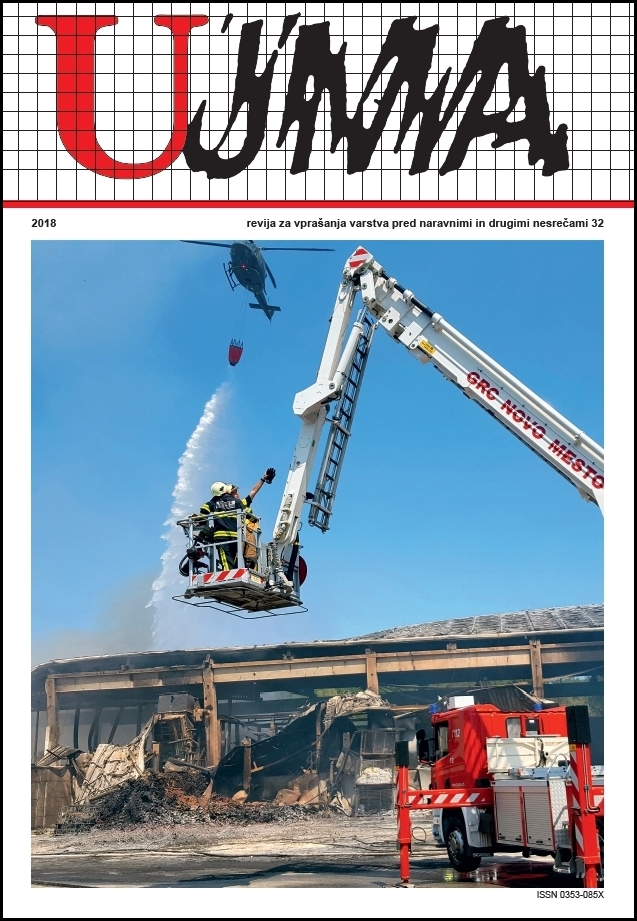EXPECTATIONS OF THE GENERAL PUBLIC TOWARDS “PROFESSIONAL” FIRST AID GIVERS
Abstract
Being suddenly confronted with injury, poisoning or illness presents a challenge for lay first aid givers, who may be faced with a dilemma about whether or not to give first aid. Six field experiments were carried out, with the aim of observing the response of random witnesses to a mock incident of a “patient” suffering severe chest pain, leading to a loss of consciousness. During all the experiments, the bystanders noticed the “patient”, but only one of them quickly checked whether the “patient” needed assistance. All the other witnesses only helped the “patient” after he had asked for help. These particular cases of bystanders (not) providing first aid reveal actions indicating people’s rationalism, which is a norm of individualism. Rather than engaging in giving first aid themselves, individual witnesses to the event sought help from other “competent professionals” who happened be in the vicinity. These experiments show that the general public have great expectations of professionals, both health care professionals and others who are in any way connected to first aid. This presents new challenges, and requires the engagement and cooperation of all the key social actors who are involved in the provision of first aid.
References
Axelsson, A., Herlitz, J., Fridlund, B., 2000. How bystanders perceive their cardiopulmonary resuscitation intervention; a qualitative study. Resuscitation 47 (1): 71–81.
Baron, R. A., Branscombe, N. R., Byrne, D., 2009. Social Psychology. Boston, New York, San Francisco, Mexico City, Montreal, Toronto, London, Madrid, Munich, Paris, Hong Kong, Singapore, Tokyo, Cape Town, Sydney, Pearson.
Bizjak, K., Slabe, D., 2009. Raven nudene prve pomoči na območju službe nujne medicinske pomoči Ajdovščina. Ujma, 23, 182–186.
Derganc, M., 1994. Osnove prve pomoči za vsakogar. Ljubljana, Rdeči križ Slovenije, 15–17.
Flere, S., 2000. Sociološka metodologija. Maribor: Pedagoška fakulteta Maribor.
Fournier, V., 1999. The appeal to proffesionalism as a disciplinary mechanism. Social review 47 (2): 280–307.
Palsgaard, M., Thea, H., Malta, C., Fjordholt, M., Pedersen, D. B., Østergaard, D., Lippert, F., 2014. Debriefing bystanders of out-of-hospital cardiac arrest is valuable. Resuscitation 85 (11). 1504–11.
Republika Slovenja, Statistični urad RS. Podatki po področjih. http://www.stat.si/statweb (27. november 2015).
Sasson, C., Haukoos, S. J., Bond, C., Rabe, M., Colbert, H. S, King, R., Sayre, M., Heisler, M., 2013. Barriers and Facilitators to Learning and Performing Cardiopulmonary Resuscitation in Neighborhoods With Low Bystander Cardiopulmonary Resuscitation Prevalence and High Rates of Cardiac Arrest in Columbus, OH. Circulation: Cardiovascular Quality and Outcomes 6 (5): 550–558.
Scott, N., Seglow, J., 2007. Altruism. New York, Open University Press.
Slabe, D., 2016. Prva pomoč kot oblika solidarnosti v sodobni slovenski družbi. Doktorska disertacija. Ljubljana, Fakulteta za družbene vede.
Slabe, D., Jenštrle, A., Sotler, R., 2012a. Prva pomoč kot oblika solidarnosti: študija primera simuliranega akutnega koronarnega sindroma na vaji Potres Idrija 2011. Ujma, 26, 243–249.
Slabe, D., Kosec, L., Horvat, D., Melanšek, J., 2012b. Analiza strokovnega dela ekip prve pomoči na 17. državnem preverjanju usposobljenosti ekip prve pomoči civilne zaščite in Rdečega križa v Brežicah. Ujma, 26, 222–229.
Slabe, D., Šutanovac, R., 2014. Prva pomoč. Ocena praktičnega dela. Ljubljana, Rdeči križ Slovenije.
Downloads
Published
Issue
Section
License

This work is licensed under a Creative Commons Attribution-NonCommercial-NoDerivatives 4.0 International License.
The articles are made available to the public under Creative Commons Attribution-NonCommercial-NoDerivatives 4.0 International (CC BY-NC-ND 4.0).


